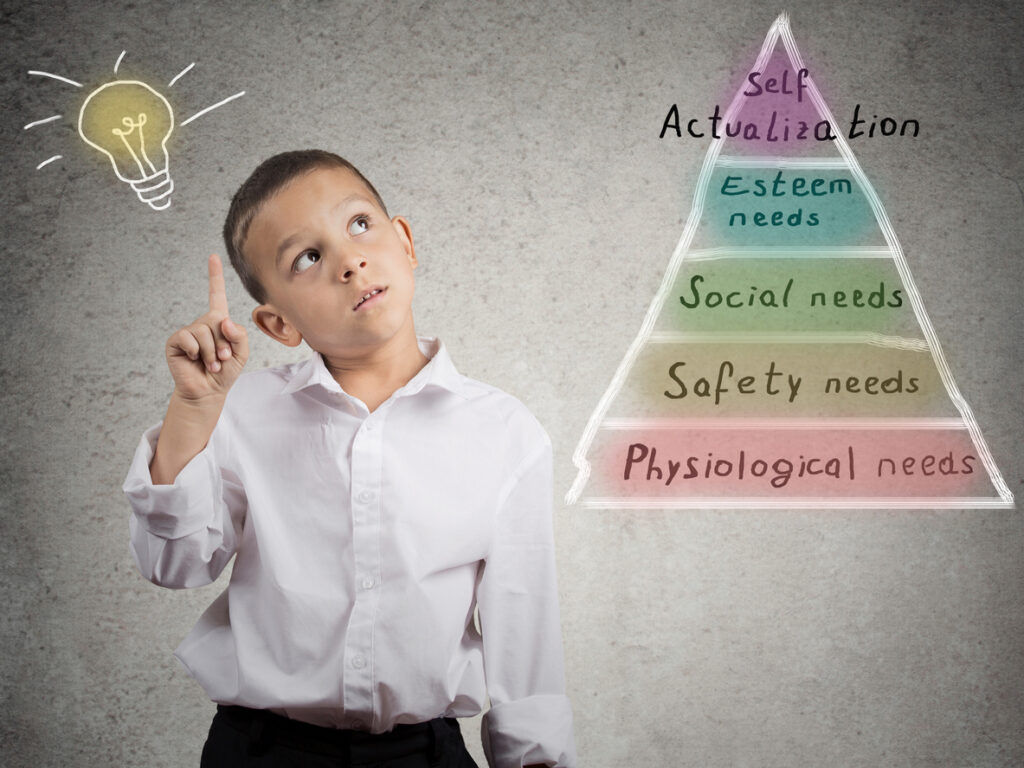Are you among the millions of people that have lost work since a state of emergency was declared last month? Employment numbers keep rising across the country. And those numbers don’t account for those whose applications for unemployment remain in limbo.
There is an understandable financial strain; the impact of which is palpable. Calls to the Substance Abuse and Mental Health Services Administration (SAMHSA) increased 891% compared to this same time last year.
But what is it about this experience of scarcity that triggers so much stress?
Abraham Maslow theorized these basic physiological needs for human survival:
- The need for health
- The need for food and water
- The need for shelter
- The need for sleep
- The need for clothing
Maslow teaches that BEFORE you have a chance of feeling “safe” and “secure,” your physical needs MUST be met. This is why we cope with ACTUAL scarcity by prioritizing basic needs.
With that in mind, here are a list of local resources that can help with basic needs during this crisis:
Emergency Food Assistance:
Housing & Utility Assistance
If changes to your personal pocketbook aren’t enough, news reports trickle in day by day, hour by hour, reminding us of the faltering state of our economy.
ABOUT SCARCITY MENTALITY
What happens if your financial situation is indeed secure, but you don’t feel secure? Maybe you begin to take precautions as if you were under financial threat. Maybe you hoard food, ration the toilet paper, and cut back on expenses. Perhaps you bolster your savings. Or maybe you just feel anxious when spending money, as if that fear will prevent you from overdoing it.
Scarcity mentality is defined by a sense that there is never enough. It impacts our thought life, our feelings of fear and caution, and drives us to action.
Impact of Childhood Experiences
Many of those that experience scarcity mentality (but are otherwise financially secure in the present) have had past experiences of insufficiency.
- Past experiences with homelessness, hunger, or poverty
- Difficulties affording basic needs
- Sense that there’s “not enough” to cover the “wants” of life (For Example: the cost of engaging in sports or music lessons)
- Sometimes subtle messages that there isn’t enough to go around (“clean your plate so nothing goes to waste” or “we need that to last all week”).
Those past experiences fuel a belief system that predicts future instability in order to protect against a similar lack of resources.
If you are experiencing scarcity mentality, a counselor can help by:
- Helping you process past experiences feeding your current distress (which may be stored in your brain as a ‘trauma’ memory)
- Using Cognitive-Behavioral Therapy (CBT) to help you shift out of negative thought patterns
- Teaching you skills (such as thought defusion) that help you ‘let go’ of unhelpful intrusive worries.
- Coaching you on how to use (and take a break from) ruminating thoughts.
- Giving you a toolbox of other skills for lowering overall anxiety, including:
- Mindfulness
- Meditation
- Grounding
- Thought-stopping
- And many other skills, depending on the theoretical orientation of the therapist
Having Difficulties Affording Therapy?
At Star Meadow Counseling, we know there are people who may be unable to pay for therapy as a result of the COVID-19 crisis. This is why our graduate student counselor is currently offering pro bono services to those impacted by the crisis. She has immediate openings for telehealth and is ready to help!
Overcoming Perfectionism with Acceptance and Commitment Therapy (ACT)
Perfectionism is often celebrated in our society, but for many, it can become an overwhelming burden. When perfectionism takes over, it can lead to constant self-criticism, avoidance of challenges, and a deep fear of failure. Acceptance and Commitment Therapy (ACT)...
Contamination Fears In a Contaminated World: What’s Appropriate And What’s Compulsive?
Covid, Measles outbreaks, Mokeypox- it can feel overwhelming to manage the constant barrage of new threats. For most people, a significant behavioral change is needed to ensure safety, but for people with OCD or health anxiety, where do you draw the line? What are...
Things You Might Feel Shame For, That Are Actually Very Common!
As therapists, we hear from people in all walks of life. Every client is different and comes to therapy with varied experiences, but one thing remains true; most people hold shame for things they don’t need to. When we feel shame, our brains will often make us think...
How to Disobey “Worthless” Thoughts
If you believe you are “worthless,” it can bring on crushing feelings of depression and shame. But worthlessness doesn't only impact how you feel. It also profoundly impacts what you do next. When you believe you are “worthless,” you might: Not ask for help Silence...
The 12 Best Mental Health Apps
Modern technology can be an amazing supplement to professional counseling. Check out these 12 Apps that come recommended for recovery from depression, eating disorders, PTSD, insomnia, and anxiety. DEPRESSION RECOVERY APPS 1. TalkLife (online support tool)...


